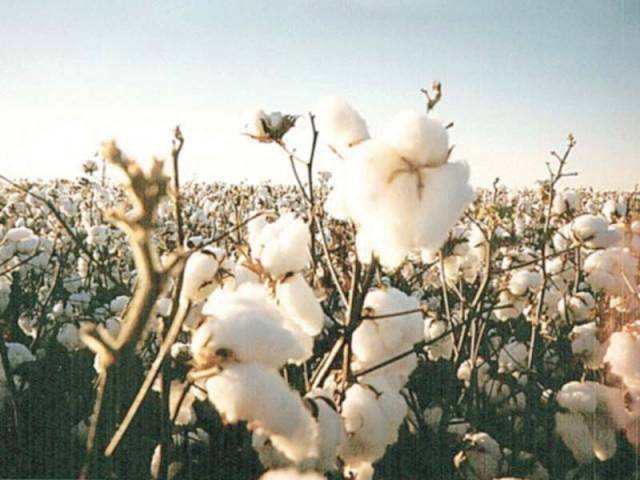Cotton crop: Ministry proposes strict monitoring of Bt varieties
Recommendation comes after farmers blamed such seeds for 40% output fall

Recommendation comes after farmers blamed such seeds for 40% output fall. PHOTO: FILE
Following a 40% drop in cotton output in the 2015-16 season, the ministry has strongly recommended that the departments concerned should ensure that seed varieties are strictly linked with the gene expression.
Eighty per cent of cotton output in Pakistan consists of Bt (genetically modified) variety and many farmers blame it for the declining production.
Pakistan has produced 9.47 million bales this season, down about 40% from the target of 15.5 million. However, the ministry insists Pakistan is not the only country where cotton production has gone down, it is a global phenomenon.
But this cannot be denied that the production decline in Pakistan was sharper than the global trend.
Multan, Bahawalpur and DG Khan were the areas that saw a big fall in their cotton harvest.
The ministry says though the supply of cotton seeds was better than last year, still there was room for improvement and told relevant departments to ensure marketing of 100% certified seeds only.
However, a senior officer in the ministry argued that uncertified and infected seeds had flooded the market with no effective mechanism to restrict their sale. “A huge business worth Rs40 billion is done by the seed industry and this is the reason why substandard seeds are supplied by taking advantage of the ineffective mechanism,” he remarked.
In its recommendations, the textile ministry has asked research institutes to accord priority to the development of seed varieties that could withstand the impact of climate change.
It has approached the National Bio-safety Committee asking it to start a monitoring programme for the Bt cotton varieties and their gene expression.
The ministry also emphasised the need for educating farmers by highlighting management strategies through seminars, field trips and workshops in cotton-growing areas. Over 60 training sessions have already been conducted for the farmers and about 5,000 growers have been trained for off-season management of Pink Bollworm.
The monitoring of this insect has already been initiated in cotton fields and ginning factories to avoid damage to the harvest.
The ministry asked the federal government to take steps for bringing down the input cost of growers so that their income can be increased and they can use better seeds and other inputs to increase production.
Published in The Express Tribune, May 15th, 2016.
Like Business on Facebook, follow @TribuneBiz on Twitter to stay informed and join in the conversation.



















COMMENTS
Comments are moderated and generally will be posted if they are on-topic and not abusive.
For more information, please see our Comments FAQ